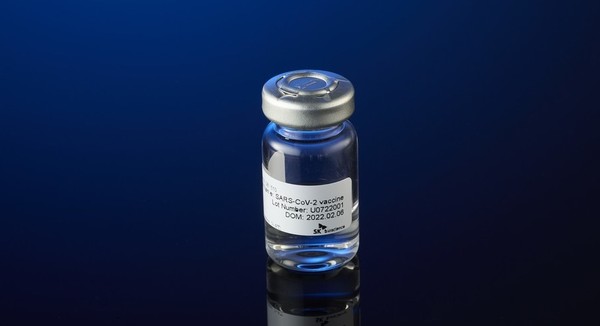Pharmaceutical experts repeatedly said SK Bioscience’s Covid-19 vaccine SKYCovione needed additional safety review during the regulator’s marketing approval process, minutes of a drug review panel showed.
The Ministry of Food and Drug Safety recently disclosed the minutes of the Central Pharmaceutical Affairs Council meeting to review SKYCovione approval.

The meeting, held on June 26, was attended by 11 out of 14 standing members of the biopharmaceutical subcommittee and five experts. MFDS officials included Seo Kyung-won, director general of the National Institute of Food and Drug Safety Evaluation, and Park In-sook, director of the institute’s biopharmaceutical review department.
According to the minutes, members of the central pharmaceutical review panel said SKYCovione’s safety was within the permissible level. However, due to the small number of cases, panelists said it was difficult to conclude the safety and that the vaccine needed continued monitoring.
“Unlike existing vaccines, SKYCovione has a small number of cases (about 3,000), so it is difficult to gauge its safety on an equal footing. When cases build up later, there may be more reports of adverse reactions,” one panelist said.
Another panelist said the number of participants in SKYCovione’s trial was only one-tenth of other vaccine trials, and it was unclear what other adverse events might occur.
The panelist added that the vaccine needs additional evaluation on safety.
At the meeting, reviewers also said that SKYCovione’s effectiveness depended on GSK’s immunologic adjuvant AS03. SKYCovione mixes the antigen vial with the immunologic booster.
A third council member said data showed that the vaccine without the immunologic adjuvant had almost zero immunogenicity.
“I wonder what kind of effect it would have had if there was a test group that received the immune booster alone in the clinical trial,” the panelist said.
The MFDS said no group received GSK’s immunologic adjuvant alone, even in the non-clinical trial.
The ministry looked at the antibody titer data as neutralizing antibody titer values and judged that the adjuvant played a “booster” role in inducing more immune responses.
A fourth panelist said the vaccine’s core technology seemed to be the immune booster and asked whether Korean drugmakers were developing it, too.
In reply, the MFDS said not only SK Bioscience’s vaccine but other recombinant vaccines used immunologic adjuvants.
“In mRNA vaccines, lipid nanoparticles (LNPs) are important. Some Korean companies license-in related technology from foreign companies and some others develop their LNPs and antigens,” the MFDS said.
The ministry added that the government was seeking to support Korean companies’ research of LNPs and continue to monitor research outcomes.

